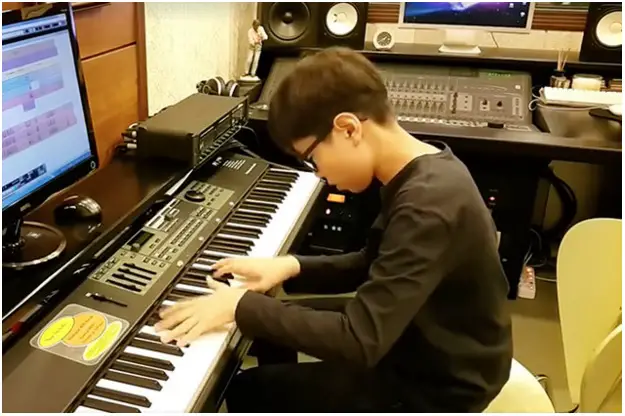
Talented children, who can play a music instrument (piano, guitar, violin, etc), usually try to play very fast. However, besides the speed,they also need to take care of the expressions.
Learning to play a musical instrument takes time, but there are some kids who pick up quite well, and in a matter of few months they are able to display impressive skills.
They know all the pieces that are expected from them at that age, the know how to play the various scales, and even know how to play popular classical pieces.
As they go about learning more concepts, music theory, etudes and more pieces, its also important to teach them to play slowly (at a slower tempo that what is suggested).
It is because, in their quest to play fast, they miss out on the expressions, because of which their playing sounds very mechanical.
I understand that it is expecting too much from a child, because for many, learning to play a musical instrument itself is a big achievement. A large number of students are going to drop out after a few months.
And if someone is able to play the piano, guitar or any other instrument at a very young age, then that is something that should be appreciated.
The point I am trying to make is that any student, who is obviously showing good skills, if he comes back to you (the music teacher) and says what can I learn next, it doesn’t have to be a new piece/song.
You can ask him to take a piece that he already knows and ask him to play at a slower tempo. For example, he could take Mozart’s Turkish March or The Entertainer and play it at a slower tempo.
There are many kids who can play these songs, in fact many of them are able to play it faster than the suggested tempo. But they are not able to add the emotional element; they miss out on the expressions.
That is why it is important that they also learn to play the song at a slower tempo, so that they can carefully observe the dynamics and incorporate them in their playing.
The ‘expressions’ part is something that they are not going to learn overnight; its definitely going to take time, but its good to know areas of improvement.
Its also a good idea to make them listen to those pieces, performed by experienced artists, so they know how its supposed to sound like.
Here’s a video in which this child plays the Turkish March blindfolded (after Chopins’ Fantasie Impromptu, which he plays beautifully). No doubt Turkish March is a piece that needs to played at a faster tempo, but in this case he seems to be in a hurry to finish the piece, and trying to impress with this speed and trying to show us that he can play blind folded.
One of the comments on the video is “Music and art is not a competition nor a sport. He is playing skillfully but I don’t hear the beauty in his playing, it doesn’t touch my heart. Maybe over time he will find his voice and open his personality.”
The above comment more or less sums up what I am trying to say. There were many who got offended by that comment with many asking, did he even know how to play “Twinkle Twinkle Little Star” at that age.
But as I said, the point is of course not to criticize but to make such students aware that besides speed, its equally important to add in the emotional factor, and that is what even the judge is pointing out — “I am looking forward to the day when your skill matches the emotion that you gather as an adult because the combination of emotion and your skills is going to be really something to see.”.
So for all the budding stars of tomorrow, who spend hours practicing, that is one suggestion that you must kep in mind.
Jacintha is a singer and teacher, she takes piano and vocal lessons, sings for gigs, and also helps manage all the music requirements at her local church. Read more here.



Leave a Reply